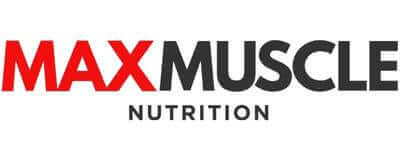In the ever-evolving world of fitness and health, supplements have become a topic surrounded by a myriad of myths and misconceptions. From miraculous muscle-building promises to instant weight loss solutions, the information swirling around supplements can be misleading and, at times, harmful. This comprehensive guide aims to debunk common fitness myths related to supplements, providing clarity on what you really need to know to make informed decisions for your health and fitness journey.
Myth 1: Supplements Can Replace a Balanced Diet
The Reality:
No supplement can substitute the nutritional benefits of a well-rounded diet. Whole foods offer a complex array of nutrients, including vitamins, minerals, fiber, and antioxidants, which work synergistically to support overall health. Supplements should be used to "supplement" a diet, filling in nutritional gaps rather than replacing whole food sources.
Myth 2: More Protein Equals More Muscle
The Reality:
While protein is essential for muscle repair and growth, consuming it in excessive amounts doesn't necessarily translate to increased muscle mass. The body can only utilize a certain amount of protein; any excess is either excreted or stored as fat. It's important to consume protein in moderation, based on your body's needs and activity level.
Myth 3: Fat Burners Are a Quick Fix for Weight Loss
The Reality:
Fat burners are often marketed as a quick solution to weight loss, but there's little scientific evidence to support their effectiveness. Real weight loss and fat reduction require a holistic approach, including a balanced diet, regular exercise, and adequate sleep. Relying solely on fat burners can be ineffective and may lead to adverse health effects.
Myth 4: All Supplements Are Safe Because They're Natural
The Reality:
The term "natural" does not always equate to safe or risk-free. Many supplements contain ingredients that can interact with medications, have side effects, or lead to allergic reactions. It's crucial to research supplements thoroughly and consult with a healthcare professional before adding them to your regimen.
Myth 5: Creatine Is Harmful and Leads to Water Retention
The Reality:
Creatine is one of the most researched supplements and is generally considered safe when used as directed. While it can cause water retention in the muscles, this is part of its mechanism for enhancing performance. Creatine's benefits in improving strength, power, and muscle mass are well-documented, with minimal adverse effects when taken responsibly.
Making Informed Supplement Choices
When considering supplements, prioritize transparency and research. Opt for products with clear ingredient labels, backed by scientific evidence. Remember, the supplement industry is vast and not all products are created equal. Being well-informed and cautious can help you navigate the world of supplements effectively, enhancing your fitness journey without falling prey to myths.
Conclusion
Debunking myths surrounding fitness supplements is crucial in fostering a well-informed fitness community. Understanding the real benefits and limitations of supplements empowers individuals to make choices that truly benefit their health and fitness goals, without being swayed by unfounded claims or marketing hype.
As you continue to explore the role of supplements in your fitness regimen, sharing accurate information and personal experiences can help dispel myths within your circles. Engaging in open discussions about the truths and misconceptions of supplements can contribute to a more knowledgeable and health-conscious community.
Mike Pringle

